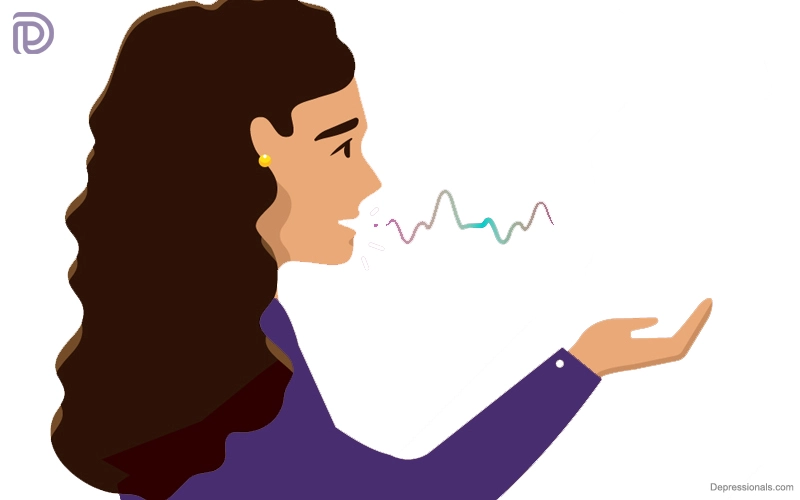What are speech disorders?
Speech disorders can impact a person’s ability to make sounds and form words. Certain vocal problems can also be classified as speech problems.
Stuttering is one of the most often seen speech disorders. Apraxia and dysarthria are two more speech problems.
- Apraxia is a motor speech disorder caused by dysfunction in the brain’s speech-related areas.
- Dysarthria is a motor speech disorder in which the mouth, face, or breathing muscles weaken or become difficult to move.
Some persons with speech problems know what they want to say but are unable to express themselves. This may result in low self-esteem and the onset of depression.
Adults and children alike might suffer from speech problems. These diseases can be reversed with early therapy.
Read: Learning Disorder
What causes speech disorders?
The vocal cords, nerves, muscles, and other tissues in the throat are all affected by speech problems.
Causes may include:
- Vocal cord damage
- Brain damage
- Muscle weakness
- Respiratory weakness
- Strokes
- Vocal cord polyps or nodules
- Paralysis of the vocal cords
Speech problems can occur in people who have specific medical or developmental issues. The following are some of the most common conditions that might cause speech problems:
- Autism
- Attention deficit hyperactivity disorder (ADHD)
- Strokes
- Oral cancer
- Laryngeal cancer
- Huntington’s disease
- Dementia
- Amyotrophic lateral sclerosis (ALS), also recognized as Lou Gehrig’s disease
Speech problems can be inherited and can progress over time.
Read: Expressive Language Disorder
What are the symptoms of speech disorders?
Several speech disorder symptoms may be present depending on the cause. People with speech problems commonly experience the following symptoms:
- Repeated noises, which is most commonly noticed in stutterers
- Adding more sounds and words
- Elongating words
- when talking, making jerky motions, generally involving the head
- While speaking, blinking many times
- When attempting to communicate, you can see how frustrated you are
- While speaking, taking many pauses
- When talking, the sounds are distorted
- Hoarseness, characterized by a raspy or gravel voice
Read: Pervasive Developmental Disorder
How are speech disorders diagnosed?
Speech disorders can be diagnosed using a variety of tests:
Denver articulation screening exam
The Denver articulation screening examination (DASE) is a widely utilized test method for articulation problems diagnosis. This exam assesses the clarity of children’s pronunciation between the ages of 2 and 7. This five-minute exam assesses the child’s speech using a variety of tasks.
Early language milestones scale 2
James Coplan, a neurodevelopmental pediatrician, devised this test to evaluate a child’s language development. This exam can detect delayed speech or language problems rapidly.
Revised peabody picture vocabulary test
This exam evaluates a person’s vocabulary and speaking aptitude. The individual will listen to a variety of words and then select visuals that best describe the words. This test is not accessible to those with significant intellectual impairments or those who are blind. Since its first administration in 1959, the Peabody visual vocabulary exam has undergone several revisions.
Read: Truman Syndrome
Speech disorders treatment
Treatment for mild speech disorders may not be necessary. Some speech problems may go away on their own. Others may benefit from speech therapy.
The type of illness determines the method of treatment. A trained therapist will lead you through exercises to strengthen the muscles in your face and throat during speech therapy. You’ll learn to keep your breathing under control while speaking.
Controlled breathing and muscle-strengthening activities can help you enhance the sound of your speech. You’ll also learn how to practice speaking in a smoother, more fluent manner.
Nervousness, shame, and sadness are common symptoms of speech problems. In some cases, talk therapy may be beneficial. A therapist will talk to you about coping strategies and methods to enhance your condition’s perspective. Antidepressant drugs might assist if your depression is severe.
Potential complications
Speech disorders that go untreated can create a lot of worry in a person. Worry disorders or a fear of speaking in public might develop as a result of this anxiety. Anxiety therapy at an early age can assist to avoid the onset of anxiety disorders or phobias. Talk therapy and anti-anxiety medicines are two treatment possibilities.
Read: Tardive Dyskinesia
What are the long-term prospects?
People who get therapy early have a better prognosis. A speech problem can be prevented from worsening if it is treated early. The prognosis for people with lifelong impairments is determined by the severity of their condition.






Nice read, I just passed this onto a friend who was doing some research on that. And he actually bought me lunch as I found it for him smile Thus let me rephrase that: Thanks for lunch! “We have two ears and only one tongue in order that we may hear more and speak less.” by Laertius Diogenes.
I just couldn’t depart your site before suggesting that I extremely loved the usual info a person supply in your visitors? Is gonna be again ceaselessly to check up on new posts